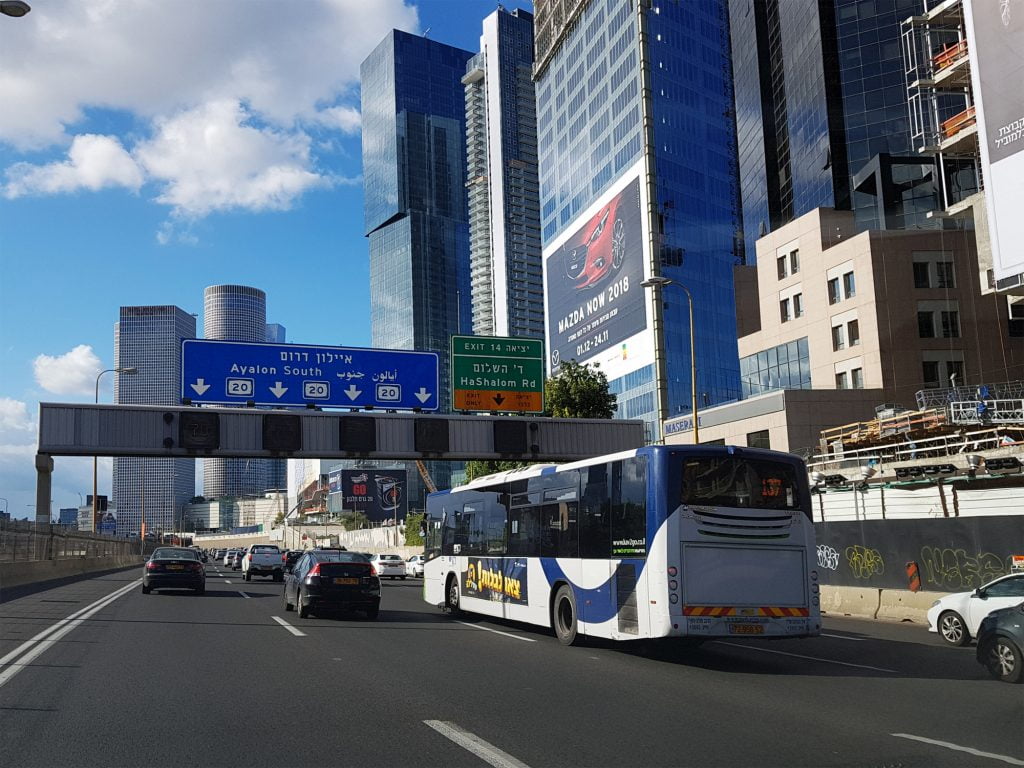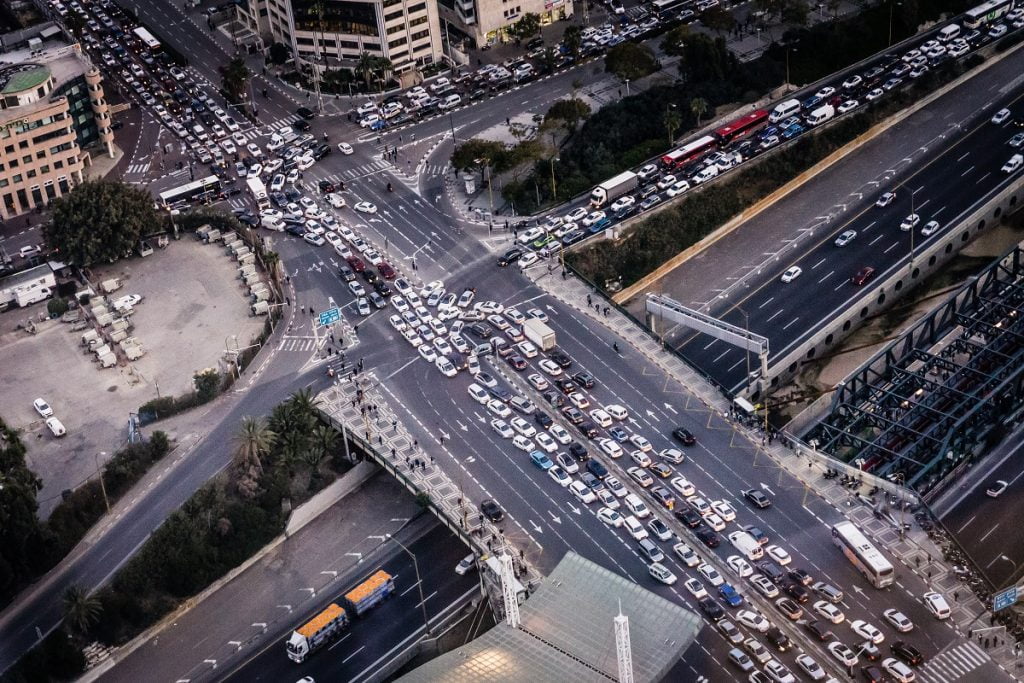Netivei Israel, the country’s national transport and infrastructure company, is launching an innovation division that will seek to solve challenges such as congestion, maintenance, and management, with an annual budget of NIS 10 million ($2.82 million).
The announcement was made on Monday during a virtual press conference for the 8th annual EcoMotion Conference, an event focused on innovation in the transportation and mobility sector that draws thousands of participants every year. This year, the conference is being held online through a virtual platform amid pandemic-related restrictions. Over 100 Israeli and global startups will take part in the virtual exhibition.
SEE ALSO: Israelis Generally Unhappy With Work-Life Balance, Spend Hours In Traffic – Report
EcoMotion is a joint venture of the Israeli Innovation Institute, the Smart Transportation Administration in the Prime Minister’s Office, and the Ministry of Economy.

Netivei Israel is responsible for the planning, development, and maintenance of Israel’s interurban road network as well as the railways network. The road network encompasses 8,600 km of inter-city roads or 98 percent of all the country’s roads. The company works with a budget of approximately NIS 70 billion ($20 billion), according to Hilla Haddad Hamelnik, head of Netivei Israel’s new Innovation and Strategy Division.
The division will focus on three main areas: pilot programs for advanced technologies and beta sites, development of traffic management alongside preparations for receiving electric and autonomous vehicles, and research programs in collaboration with leading academic bodies across the world.
The new division will also appeal to the Israeli and global smart mobility community for collaboration.

“Studies and research around the world prove that using advanced technologies for handling, monitoring, developing, and maintaining infrastructure can lead to a significant change in how the general public experience and use transport,” Haddad Hamelnik said in a statement. “By reducing up to 20 percent of daily traffic congestion on roads, reducing road accidents, through a significant cut in maintenance costs and improving existing infrastructure, our goal is to ensure the country known around the world as the start-up nation put this into practice at home.”
Sign up for our free weekly newsletter
SubscribeNissim Peretz, CEO of Netivei Israel, said: “Establishing an innovation and strategy division is part of the company’s strategic vision… to assure the public that we provide the best value for money – in safety, congestion reduction and advanced infrastructure.”

Ahead of the launch of the division, Netivei Israel partnered with EcoMotion to release a tender asking for solutions in three areas: optimizing truck traffic, taking preventative maintenance for bridges; and analyzing legal traffic claims using artificial intelligence. Five winners were selected; they received a total of a million NIS for a demo project.
Among the winners are InprisWay and AutoLab, Israeli companies that will help monitor truck traffic flow and safety through helping to reduce distraction, and allowing the vehicle fleet manager to monitor vehicle status, required treatments, and faults, respectively. Manam Applications will demonstrate the ability to periodically review bridges using drones, and Dynamic Infrastructure will tap into existing databases and images to produce “medical portfolios” using AI of the road structures for maintenance purposes.
In addition, two Israeli entrepreneurs developed an AI system that allows to predict legal claims resulting from various road events, thus streamline the handling of future cases. Netivei Israel says it is sued every year for damages from road faults such as potholes, different obstacles and so on. The company says solutions will be explored for mapping claims and drawing conclusions that will help improve road safety and thus reduce the number of claims
Traffic congestion is a notorious problem in Israel. The country has a population of around nine million people and transportation is largely based on the use of private cars, which creates massive traffic jams particularly in the center – Israel’s economic hub. In fact, Israel has the highest road congestion of any OECD country by a wide margin, according to OECD figures from 2014. The public transit infrastructure, meanwhile, lags behind other developed countries in the OECD by about 25 years, according to a 2014 study by the Knesset Research and Information Center. There are ongoing projects to address this issue, but with Israel facing a third national election in under a year, it is unclear where efforts stand.
The Finance Ministry has estimated that the annual economic damage caused by traffic congestion stands at some NIS 35 billion annually. According to the OECD, Israel’s costs of congestion are estimated at around two percent of GDP, “above levels in other high-income economies.”
Related posts

Editors’ & Readers’ Choice: 10 Favorite NoCamels Articles

Forward Facing: What Does The Future Hold For Israeli High-Tech?

Impact Innovation: Israeli Startups That Could Shape Our Future





Facebook comments